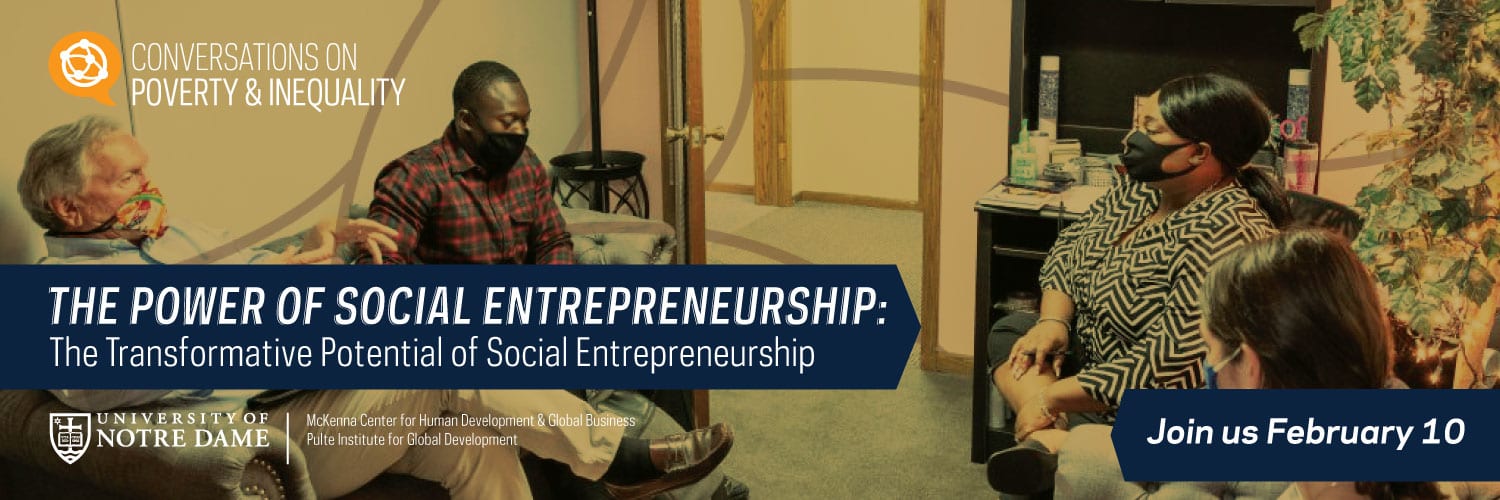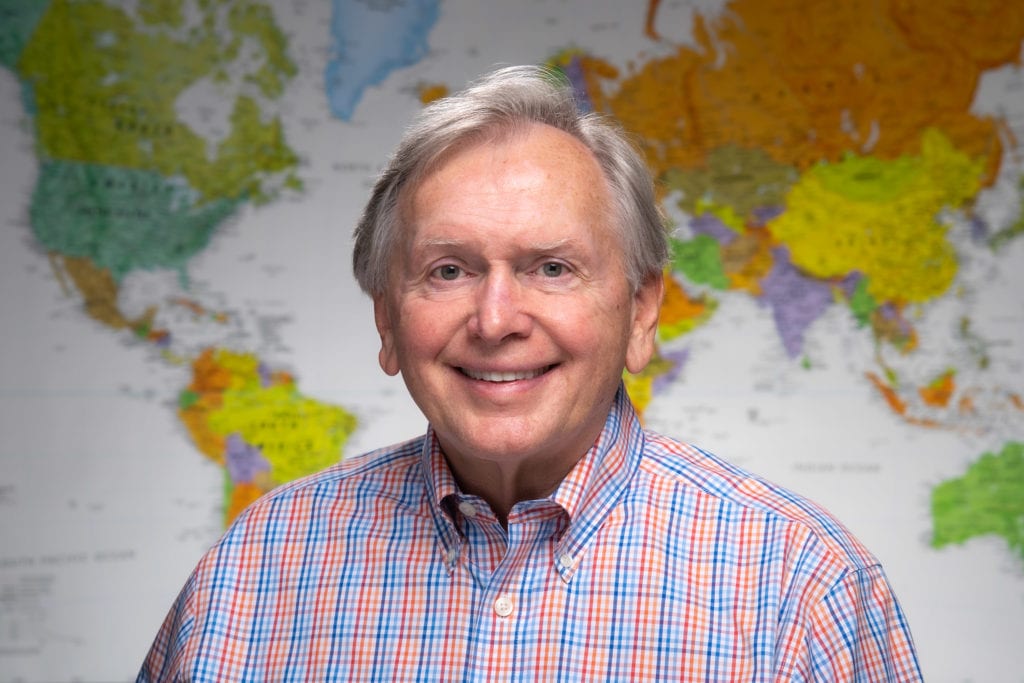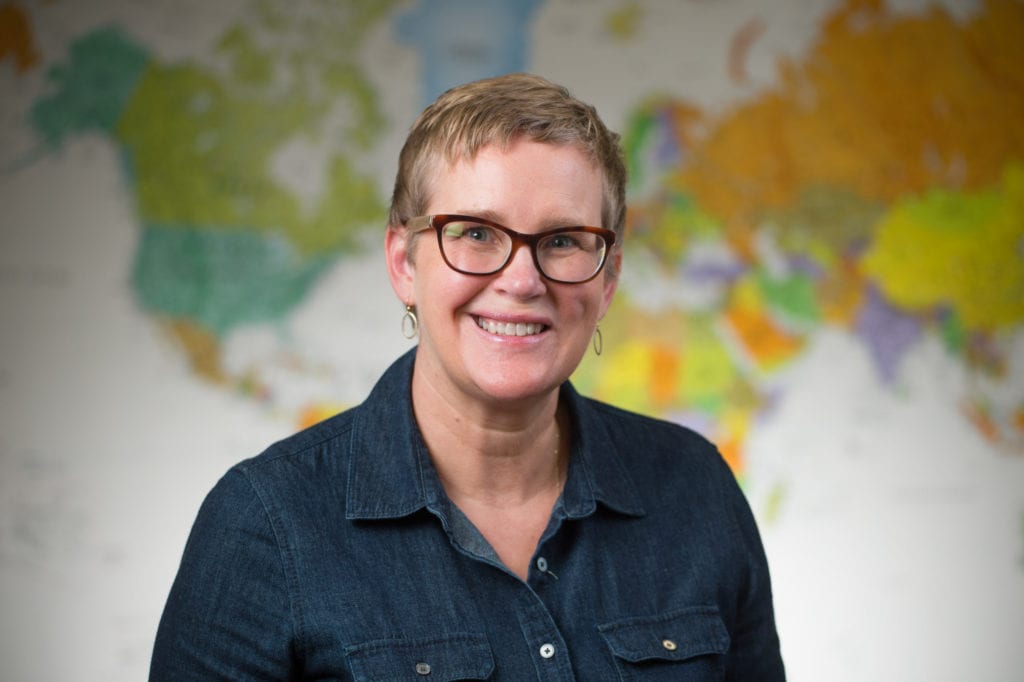The Transformative Potential of Social Entrepreneurship

What IS social entrepreneurship? The first session of our series will help you get familiar with the concept of social entrepreneurship and understand why it is gaining popularity in some communities and sparking controversy in others. We’ll see some unique examples of how social entrepreneurs are changing the world and what Notre Dame is doing to foster this mindset within its students.
Michael Morris
Presented by Michael Morris
Professor of the Practice, McKenna Center for Human Development and Global Business

Michael H. Morris is a Professor of the Practice who specializes in entrepreneurship and social innovation. A pioneer in curricular innovation and experiential learning, he has built three university entrepreneurship programs that have been ranked in the top 10 in the United States and earned global recognition for excellence. Morris has worked to bring entrepreneurship empowerment to those operating under conditions of adversity, a commitment that is reflected in his research, teaching, and community engagement efforts.
Melissa Paulsen '05 M.N.A.
Presented by Melissa Paulsen
Associate Director, Entrepreneurship and Education Programs, Pulte Institute for Global Development; Assistant Professor of the Practice, Keough School of Global Affairs

Melissa Paulsen leads the Pulte Institute’s Entrepreneurship and Education Division, working with faculty to develop interdisciplinary approaches to education and training programs related to global development needs. Paulsen was previously an assistant director at the Gigot Center for Entrepreneurship in the Mendoza College of Business and served as director for the Center’s social entrepreneurship program.
Understanding the Meaning of Social Entrepreneurship
Presented by Melissa Paulsen and Michael Morris
- Article: “The Meaning of “Social Entrepreneurship,” J. Gregory Dees
Social entrepreneurship is attracting growing amounts of talent, money, and attention, but along with its increasing popularity has come less certainty about what exactly a social entrepreneur is and does. In 1998, when Professor Gregory Dees wrote The Meaning of “Social Entrepreneurship,” the phrase was barely known, even by those running “social ventures” at the time. Dees’ seminal article, which was written while he was a professor at Duke University’s Fuqua School of Business, defined the contours of what was then an emerging field.
Dees wrote: “The language of social entrepreneurship may be new, but the phenomenon is not. We have always had social entrepreneurs, even if we did not call them that. They originally built many of the institutions we now take for granted. However, the new name is important in that it implies a blurring of sector boundaries. In addition to innovative not-for-profit ventures, social entrepreneurship can include social purpose business ventures, such as for-profit community development banks, and hybrid organizations mixing not-for-profit and for-profit elements, such as homeless shelters that start businesses to train and employ their residents. The new language helps to broaden the playing field. Social entrepreneurs look for the most effective methods of serving their social missions.”
Read Dees’ article to gain background knowledge and understanding on the concept in advance of this week’s session.
Social Entrepreneurship in Action: A Warm Embrace that Saves Lives
Presented by Melissa Paulsen and Michael Morris
In the developing world, access to incubators is limited by cost and distance, and millions of premature babies die each year. Jane Chen is the co-founder and CEO of Embrace, a social enterprise that aims to help the millions of vulnerable babies born every year in developing countries through a low-cost infant warmer. Her invention could keep millions of infants warm through a design that’s safe, portable, low-cost, and life-saving.
Social Entrepreneurship at Notre Dame
Presented by Melissa Paulsen and Michael Morris
The McKenna Center and the Pulte Institute coordinate a mix of curricular, research, and community engagement initiatives related to social entrepreneurship and innovation, with a core emphasis on poverty alleviation around the world. Our focus is on the empowering potential of entrepreneurship as a vehicle for addressing social needs and problems in new and different ways. Examples of initiatives in our portfolio include:
- Entrepreneurship and Empowerment in South Africa (EESA) – McKenna Center
- Global Partnership for Poverty and Entrepreneurship – McKenna Center
- Journal of Developmental Entrepreneurship – McKenna Center
- Mandela Washington Fellowship for Young African Leaders – Pulte Institute
- Pulte Institute Student Fellowship – Social Entrepreneurship internship opportunities
- South Bend Entrepreneurship and Adversity Program – McKenna Center
The Great Divides in Social Entrepreneurship and Where they Lead Us
Presented by Melissa Paulsen and Michael Morris
Optional reading for this week includes a scholarly article written by Michael Morris, titled The Great Divides in Social Entrepreneurship and Where they Lead Us.
Abstract:
While social entrepreneurship (SE) as a field of study has progressed some distance over the past four decades, it is plagued by many unanswered, yet fundamental, questions. The SE literature is filled with an abundance of disputes, controversies, and alternative perspectives. Although this can suggest a healthy and robust discipline, it can also raise questions regarding the legitimacy and relevancy of the field, and uncertainty regarding where it is headed. In this research, we provide a systematic overview of major unresolved issues characterizing the contemporary study of SE in the form of thirteen divides. These divides cover such issues as social value creation, social innovation, nature of the process, agents, entrepreneurial orientation, scalability, venture creation, revenue sources, organizational outcomes, efficacy, and the appropriate disciplinary home. Rather than taking sides on each divide, we discuss how these diverse perspectives can be accommodated based on the process perspective. We present an inclusive approach to SE that provides a common platform for advancing the field while allowing for diverse streams of research.
View the Event
Presented by Melissa Paulsen and Michael Morris
Subscribe to the ThinkND podcast on Apple, Spotify, or Google.
Featured Speakers:
- Michael Morris, Professor of the Practice, McKenna Center for Human Development and Global Business
- Melissa Paulsen, Associate Director, Entrepreneurship and Education Programs, Pulte Institute for Global Development; Assistant Professor of the Practice, Keough School of Global Affairs
